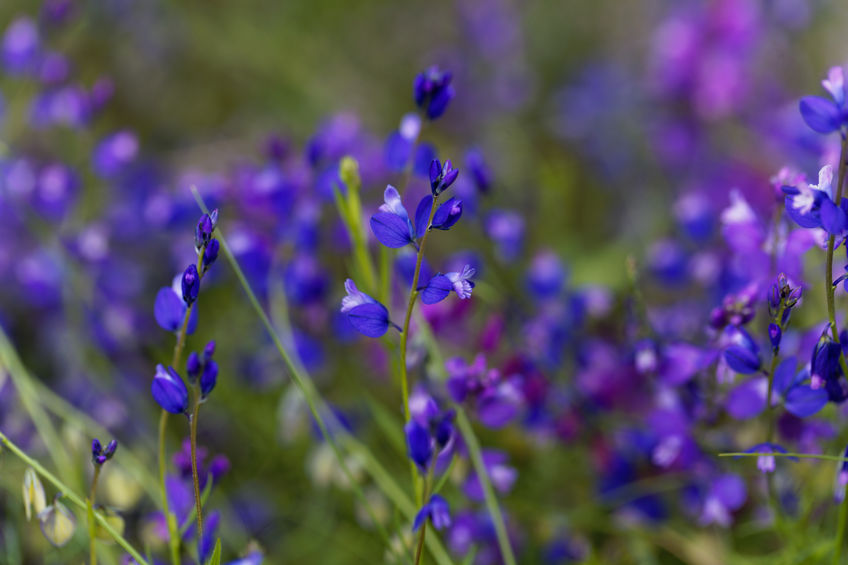Thinleaf Milkwort - Polygala tenuifolia

Common Names: Thinleaf Milkwort, Yuan Zhi, Chinese Senega Root, Radix Polygalae, Polygala tenuifolia, Polygala root, Yuan-zhi, Yuanzhi, Chinese Milkwort, Senega, Senega root
Latin Name: Polygala tenuifolia
Origin: Asia
Short Introduction
No information is available regarding the cultivation of Thinleaf Milkwort in the Czech Republic.
Detailed Description
An Asian herb prized for its calming properties.
Botanical Information
Thinleaf Milkwort, Polygala tenuifolia, is an herbaceous plant that grows to about 30 cm in height. It features sessile, narrow leaves, a strong root system, and clusters of purple flowers at the apex of the plant.
Origin and Distribution
This species originates from East Asia, specifically the regions of northern China, Mongolia, and parts of eastern Russia. It thrives best in dry habitats, preferring sandy or stony soils.
Usage / Dosage
Thinleaf Milkwort remains relatively unknown in Western herbal practice. It has recently begun to attract scientific attention, with increasing research into its bioactive compounds.
Its most prominent use is in Traditional Chinese Medicine, where the root is recognized as one of the 50 fundamental herbs. Polygala tenuifolia root—referred to as Yuan Zhi—is traditionally used as an expectorant for upper respiratory tract inflammation and to support expectoration during wet, productive coughs. Some constituents are known for their mild antibacterial effects, offering a rationale for this respiratory application.
Animal Studies
Preclinical studies in animals have shown that active constituents in Thinleaf Milkwort may have an antidepressant effect, helping to improve mood by enhancing resilience to stress rather than directly elevating mood. Its neuroprotective benefits have led to its categorization as an adaptogen, a botanical that increases resistance to stress and adverse environmental influences. Some research also reports improvements in memory function.
Further animal research suggests that compounds in Thinleaf Milkwort may act via mechanisms similar to ketamine, interacting with NMDA (N-methyl-D-aspartate) receptors, and can promote the synthesis of Nerve Growth Factor (NGF) and Brain-Derived Neurotrophic Factor (BDNF).
Recent animal models show Polygala tenuifolia root may boost learning processes and cognitive performance under conditions such as scopolamine, cyanide salt, stress, oxygen deprivation, or beta-amyloid administration.
Human Observations
In clinical observations, some patients experienced improved spatial organization, recognition, and orientation after using Thinleaf Milkwort; however, no consistent impact on short- or long-term memory was found.
Pharmacological Actions
A notable effect of Polygala tenuifolia is the stimulation of Nerve Growth Factor (NGF) protein, which supports the development and regeneration of nerve cells. This action suggests potential in preventing neurodegenerative diseases, including dementia and Alzheimer’s disease.
Traditional Folk Medicine
Folk remedies employ Thinleaf Milkwort as a mild sedative against insomnia, anxiety, restlessness, and neuroses. Certain preclinical studies indicate that its active compounds may help enhance cognitive function, and tenuigenin, a key constituent, is noted for its antioxidant properties in nervous tissue and ability to protect cells in the central nervous system.
Korean traditional medicine mentions decoctions of this plant for insomnia, memory loss, depression, anxiety attacks, impatience, disorientation, dementia, and amnesia.
Topically, Yuan Zhi may be applied for skin conditions or wound healing, and in cosmetics it is included in preparations for hair care, promoted for its benefits in stimulating hair growth, improving hair quality, and preventing hair loss.
Active Compounds
The root contains significant triterpenoid saponins, C-glycosides, sucrose esters, essential oils, alkaloids, oligosaccharides, tenuigenin, tenuifolin, disinapoyl sucrose, 3,4,5-trimethoxycinnamic acid, and resins.
Traditional Dosage
As Thinleaf Milkwort is not officially approved for general use, preclinical studies suggest a maximum extract dose of 1 g per kilogram of body weight daily. However, this dosage has not been clinically established for humans.
